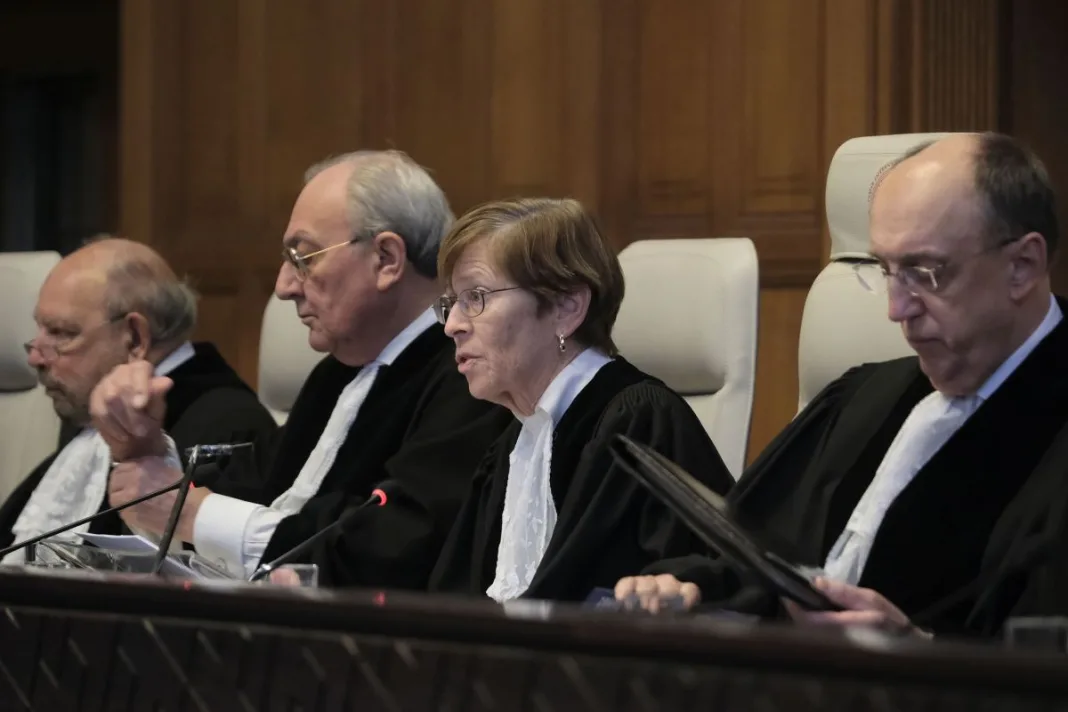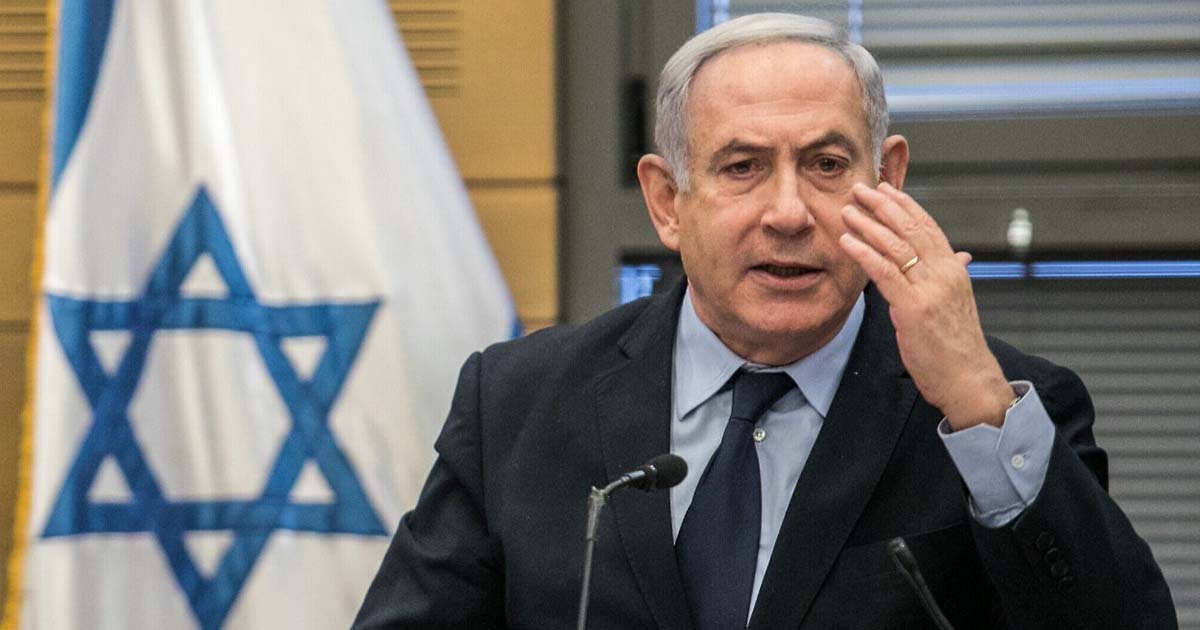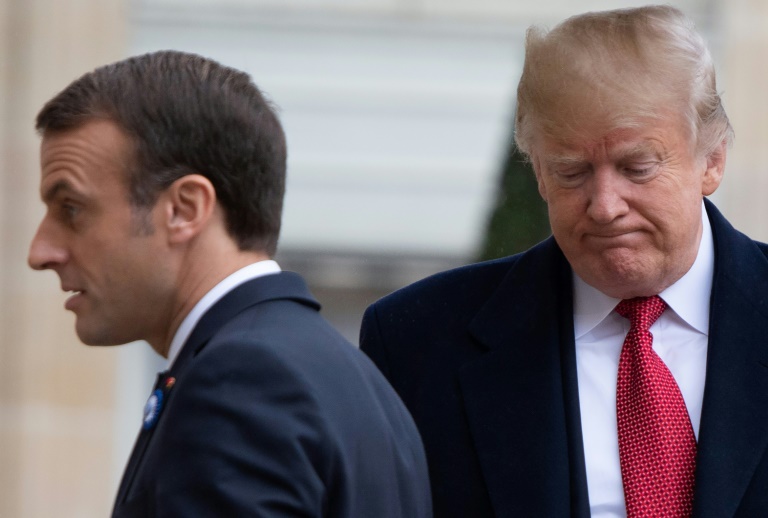The International Court of Justice (ICJ) ordering provisional measures in response to South Africa’s genocide case against Israel is a crucial step that could aid in safeguarding the Palestinian people in the occupied Gaza Strip from additional suffering and irreparable harm. To delve into the implications of this decision, GVS Editor Najma Minhas engaged in a conversation with Hassan Aslam Shad, an international law expert.
GVS: Could you walk us through what the ruling is? Initially, Twitter got very excited, but actually, the ICJ has not ordered an immediate ceasefire.
Hassan: Certainly. I was optimistic that the ICJ would order a ceasefire, but that did not happen. On the whole, I think the case is a big victory for Palestine. Firstly, let’s examine what the parties brought to the table and what they expected from the ICJ. Israel’s best-case scenario was that the court would refuse jurisdiction, dismiss the case, and agree that the ICJ does not have jurisdiction due to various reasons. This did not occur. Similarly, South Africa sought remedies, including intervention by the court to grant them, particularly a ceasefire. The court did not grant the parties their maximum positions, but it set in motion an essential development in international law. The court acknowledged its jurisdiction and granted several provisional measures favoring Palestine, although not replicating all South Africa’s requested measures.
Now, it is crucial to note that the court established a plausible case of genocide. At this stage, we were not expecting more, as the court is not deciding the case on merits but addressing South Africa’s preliminary injunction request. Accepting jurisdiction and granting these measures is, in itself, a victory for South Africa. The court ruled that there is a plausible case of genocide.
GVS: So the court has recognized a plausible case of genocide. What else?
Hassan: The court did not explicitly state that Israel is liable under the Genocide Convention or engaged in specific acts of genocide. The court cannot determine that at this stage; it would be decided on the merits of the case. However, by instructing Israel to ensure its government officials and forces do not engage in acts prohibited under Article Two of the Genocide Convention, the court implicitly accepts a plausible case of genocide against Israel. Furthermore, the court instructed Israel to prevent incitement to violence or genocide, holding those responsible for incitement accountable. Notably, most orders were passed by a vote of 15 judges in favor, with two opposing, including an Israeli judge siding with the majority. This is significant, considering Israel’s premise that the court should not have jurisdiction.
Moving forward, the court has also directed Israel to submit a report within 30 days providing evidence of compliance with the court’s orders and to preserve evidence for the merit stage. Overall, this is a positive development for the Palestinians who have endured suffering for many years, particularly in the past four months.
GVS: Does the focus on the catastrophic humanitarian situation prompt the ICJ’s ruling today, considering it happened quite quickly, in less than 10 days?
Hassan: Do you think it is about time for the court to act, considering the world has been indifferent to the massacre of Palestinians, depriving them of livelihoods, forcing them out of their lands, and terrorizing them?
GVS: What has the court specifically asked for to address this situation, this catastrophic humanitarian situation that they refer to, in their own words?
Hassan: The court has acknowledged the suffering of Palestinians, citing evidence from UN officials and repertoires who witnessed the situation. The decision is based on this suffering and the remedies sought by South Africa against Palestine and Hamas.
GVS: In this one month, is it Israel alone that has to take evidence to the court that they’re doing something to alleviate this situation, or can the South African side also present evidence that Israel is not doing anything?
Hassan: The direct obligation is on Israel. Israel has to produce evidence within those 30 days, ensuring compliance with the court’s orders. The primary responsibility rests with Israel, as the court’s order is binding as a matter of law. This adds further pressure on Israel and its partners.
Read More: Global leaders advocate ceasefire amidst ongoing Gaza crisis
GVS: What does this really mean for countries like the United States or the European Union in terms of enabling Israel or giving them a blank check?
Hassan: This is definitely going to intensify pressure on the US. There are ongoing cases against President Joe Biden in US courts, adding political and diplomatic pressure on Israel and its allies. The public acknowledgment by the International Court of Justice that Israel is engaging in genocidal acts will have implications globally. Other countries may pursue cases under the Genocide Convention, and countries obligated by the Convention may impose measures to ensure accountability. It will not be surprising if arrest warrants are issued against Benjamin Netanyahu and individuals from the IDF by countries around the world, adding further pressure.
Read More: ICJ announces its verdict in case of genocide
GVS: Is there any legal pressure on these countries, enabling Israel to proceed with its actions as they wish, aside from the moral pressure?
Hassan: As I mentioned, the ICJ cannot enforce its decisions; it relies on the goodwill and good faith of countries worldwide. The international rule of law has not been uniformly implemented, and much depends on the good faith of the countries. Unfortunately, expectations from Israel are limited due to its defiance of international law. Immediate support from Western allies for the court’s verdict is not anticipated, but this will add pressure, leading to discontent globally, especially in the global south against Israel and America.
GVS: On the 31st, the final ruling on the Ukraine versus Russia case is expected, as per the ICJ’s press release today. If Western countries fail to enforce checks on Israel’s behavior, what impact could this have on the Ukraine versus Russia ruling?
Hassan: You’re correct, and there is a direct equivalence between the two cases. Russia is accused of committing crimes under the Genocide Convention, similar to the present case ordered by the ICJ today. If the court orders action against Russia, and the Western world supports it but turns a blind eye to Israel, it would demonstrate double standards and show that they prioritize their own interests.
GVS: Concerning the steps Israel needs to take on the ground, what measures does the court expect, such as immediate and effective measures to boost humanitarian aid for Gaza or actions taken by the Israeli Government against specific individuals? Could you elaborate on the steps related to both the humanitarian and extremist elements, including statements issued?
Hassan: Regarding extremist statements, the court categorically obliged Israel to ensure no genocidal incitement in the future. This involves not only preventing incitement to genocide but also punishing individuals responsible for past statements. In terms of compliance payments, President Herzog’s statement blaming Palestinians was specifically mentioned. The court has raised the question of whether he needs to resign.
GVS: Did they specifically mention President Herzog’s statement, blaming Palestinians for this, and does he need to resign?
Hassan: If President Herzog had any remaining morality, he would not have made those statements. However, expecting morality from Israeli heads of state or government officials in today’s cyber age may be unrealistic.
GVS: Regarding the humanitarian element, what on-ground facilities do we need to see appearing?
Hassan: All of Gaza has been literally pulverized and demolished. Israel is now obligated to ensure humanitarian aid reaches Gaza, providing access to basic food and necessities for those suffering. These are things that need to be proven. After this verdict, the global lens will be on Gaza, and even countries that have sided with Israel will be watching closely to see if Israel complies. Today it is Israel, tomorrow it could be another country. How long can you flout the law and turn a blind eye to conflicts? You have to prove that you’re fair and truly acting in compliance with international obligations.
GVS: Do you feel that the moral obligations and the moral implications of this decision are greater than the legal implications, or do you think the legal implications are huge in this case?
Hassan: It is a combination of both moral, legal, political, and diplomatic aspects. In terms of legal obligations, the court’s clear statement today that there is a plausible case for genocide sets a significant legal basis. Regarding morality, the conflict and Israeli attacks on Gaza went beyond their right to self-defense under international law. Both moral and legal aspects are crucial, and today’s decision has shifted the momentum away from Israel.














